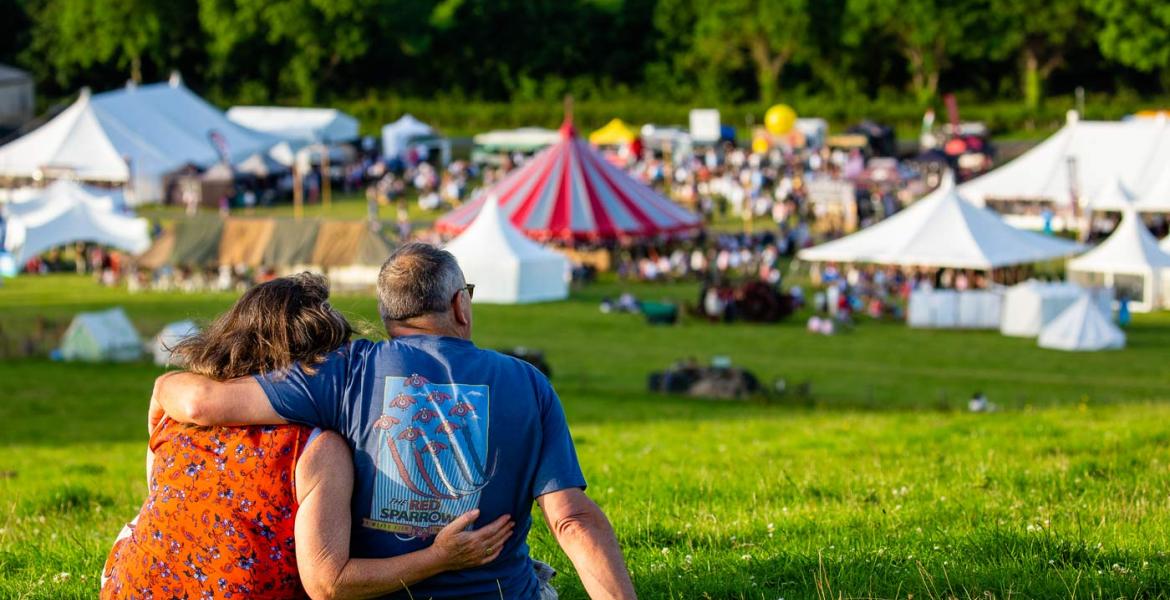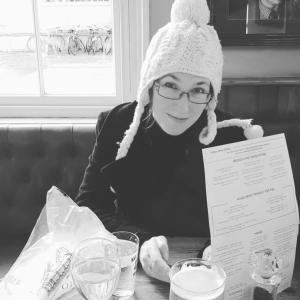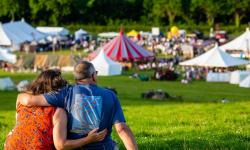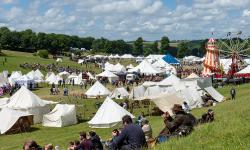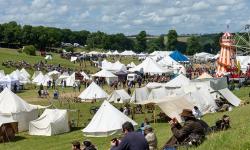The Return of Chalke Valley History Festival, 2021
After its enforced absence in 2020 due to the pandemic, Chalke Valley History Festival is set to return with a bang in 2021. Running from Wednesday 23 June to Sunday 27 June, it will be one of the very first major festivals to run this year, but don't be alarmed: there will be plenty of measures in place to ensure everybody remains safe and healthy. Nevertheless, the festival promises to be just as fantastic as usual, with fascinating talks, fun activities for all the family, wonderful food, and a great atmosphere. Festival Director Jane Pleydell-Bouverie took some time out of her busy schedule to tell us more about their plans.
For the uninitiated, can you tell us a bit about Chalke Valley History Festival?
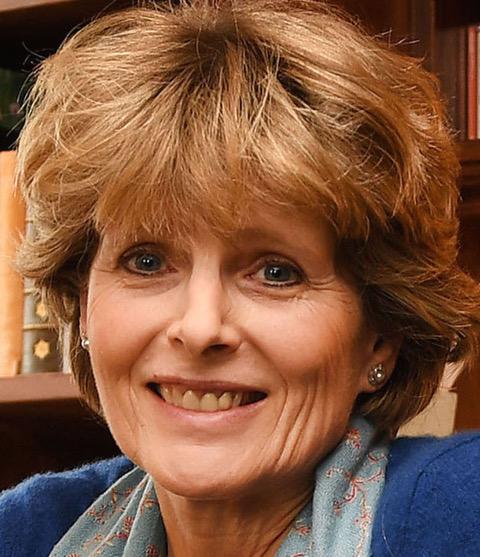
Initially the first Chalke Valley History Festival was to raise funds for the village cricket club, but it clearly struck a chord and the decision was taken to expand it and create a charitable trust. The Chalke Valley History Trust was set up to promote the inspiration and importance of history to the widest possible audience of all ages, but in particular to children through the three-day Festival for Schools. It is a unique combination of talks by top academics and best-selling historians, with living history entertainment.
You received a portion of the government fund to help you weather the crises of last year, but what impact has the loss of last year's event had on the Trust, particularly in the work that you do with education and with keeping the festival going in the future?
Cancellation in 2020 due to the pandemic was a severe blow as we had already incurred considerable costs. However, a combination of the Government’s furlough scheme, the willingness of our staff to work for reduced pay or to take a salary holiday, and the support of our donors, enabled us to keep going. The award of a generous grant from the Arts Council Culture Recovery Fund meant that we were able to plan for a festival in 2021.
Congratulations on getting the 2021 festival up and running, and you've got some fantastic speakers lined up. How hard has it been to organise this year?
Speakers have generally been very receptive. However the lockdown immediately after Christmas due to the high rate of infections meant our preparations were stalled for over two months, which has led to an extremely busy past few weeks following our decision at the end of March to press ahead.
What has changed for this year, compared with normal years, and what assurances can you give to those who might still be concerned about Covid?
The biggest change is a greater emphasis on the Outdoor Programme so there will be two outdoor stages (one with an all-weather screen and the other with a fire-pit), Speaker’s Corner, a vintage fairground and a vast array of living history displays and encampments, as well as two indoor marquees. We have a wide range of Covid-measures in place including the testing of staff, contractors and volunteers, increased medical provision, socially-distanced queuing, reduced capacity in the tents so the seating is more spaced out, and waitress-only seated service at the Big Top bar.
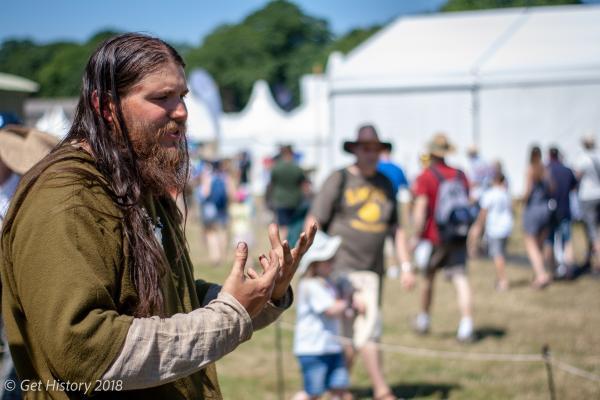
What can we expect this year, in terms of talks and in terms of the other activities?
Those attending will be able to watch our greatest living playwright and learn how to build a Roman road. There will be a former Archbishop of Canterbury and political party leader alongside some of the best-known and loved TV historians. There will be demonstrations from the Tudor kitchen, Stone AgeThe earliest part of human prehistory, running from about 3.3 million years ago until (in Britain) about 2500BCE. It is defined by the use of stones (rather than metals) as tools.The earliest part of human prehistoryThe time in the past that happened before history began to be recorded., running from about 3.3 million years ago until (in Britain) about 2500BCE. It is defined by the use of stones (rather than metals) as tools.The earliest part of human prehistoryThe time in the past that happened before history began to be recorded., running from about 3.3 million years ago until (in Britain) about 2500BCE. It is defined by the use of stones (rather than metals) as tools.The earliest part of human prehistoryThe time in the past that happened before history began to be recorded., running from about 3.3 million years ago until (in Britain) about 2500BCE. It is defined by the use of stones (rather than metals) as tools.The earliest part of human prehistoryThe time in the past that happened before history began to be recorded., running from about 3.3 million years ago until (in Britain) about 2500BCE. It is defined by the use of stones (rather than metals) as tools. flint-knapping and a Cold WarA period of geopolitical tension between the United States and the Soviet Union and their respective allies, 'officially' lasting from 1947 to 1991.-era armoured brigade headquarters. It will be possible to learn about the dark art of 19th century body-snatching, how to make wattle and daub, and learn how to make a Tudor salve and herbal cure. The head of the UK’s Armed Forces, the best-known shepherd in the land, and the most eminent international human rights lawyer in the UK will all be speaking. There will be Sword School, a vintage fairground, some of the country’s most brilliant, successful and eminent historians but also late-night storytelling around the fire with Dan Snow and Michael Wood.
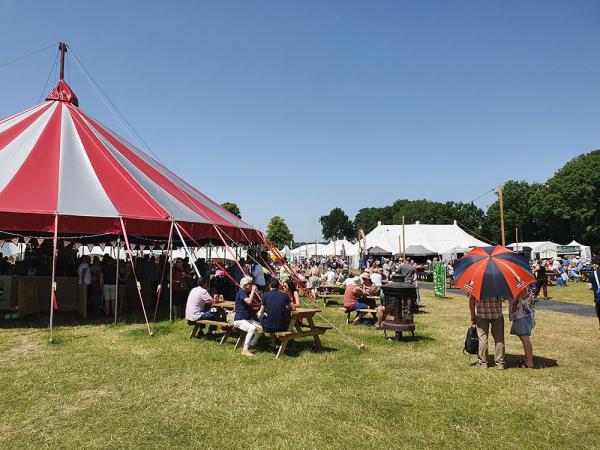
And what plans are in place for coping with inclement weather?
The big lecture marquees, the dining tent and cafés plus two shaded picnic areas will provide shelter, otherwise we will have to be very British with wellies and umbrellas.
There is always a wonderful sociable feel with the festival, with the beer tent and live music, the food vendors and the dining tent; are you hoping to be able to achieve the same atmosphere this year?
Yes. This year there will be live music every single day, from 1920s flapper music to the ancient ballads of English folk music. There's a larger number of food vendors including those selling historic food, and an extra satellite bar between the outdoor stages. We also have the Big Wheel, the oldest travelling Ferris wheel in the UK, originally built in Jacksonville, Illinois, and imported to Britain in 1922.
Last year was meant to be the festival's tenth anniversary, and it must have been terribly disappointing to have to cancel it. Are you planning to roll any of last year's festivities forward to this year?
Some of the speakers such as Rowan Williams, Tom Stoppard and Annabel Venning were booked for 2020 so we are delighted they are able to attend this summer.
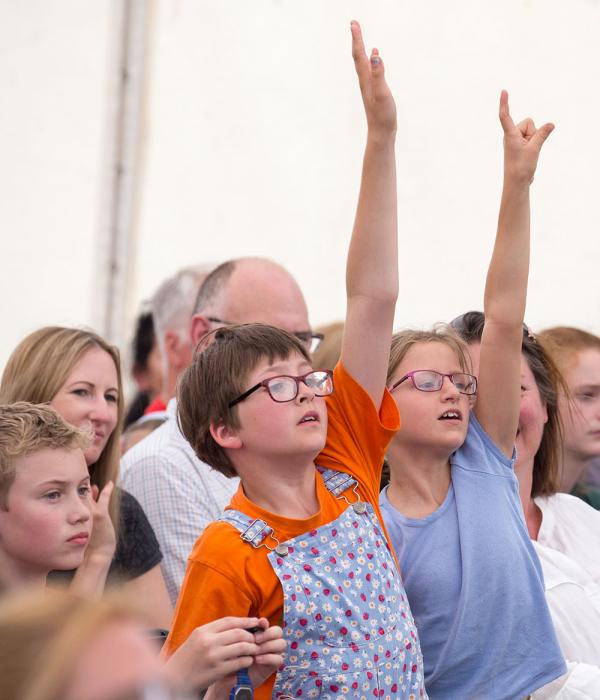
It's a shortened programme this year, particularly regarding the schools' festival. What are you putting in place for school children, and how will schools be able to get involved?
The one bit of certainty in March was that schoolchildren would not be able to leave the classroom having missed so much face-to-face teaching over the past year. We will therefore be producing a programme of curriculum-based films, ready for the start of the academic year this September, and which will be entirely free for all teachers, pupils and schools. Anyone interested in receiving notifications about this service can fill out the form on the Festival for Schools section of our website.
Since the last festival, in 2019, there have been some major social upheavals and big headlines, not just concerning Covid but also about a range of civil and environmental issues; how has your programme adapted in light of them?
Some of our talks reflect recent upheavals, for example, Niall Ferguson's talk Doom: The Politics of Catastrophe will include the pandemic and the reaction to past pandemics. There will be two talks covering the Middle East by Simon Mayall and Patrick Cordingley. Nicholas Cole will address The American ConstitutionA body of fundamental principles and established precedents by which a state governs itself; or the composition of something.A body of fundamental principles and established precedents by which a state governs itself; or the composition of something. A body of fundamental principles and established precedents by which a state governs itself; or the composition of something. A body of fundamental principles and established precedents by which a state governs itself; or the composition of something. A body of fundamental principles and established precedents by which a state governs itself; or the composition of something. after Donald Trump, and Rana Mitter will look at how the Second World WarA global war that lasted from 1939 until 1945.A global war that lasted from 1939 until 1945. A global war that lasted from 1939 until 1945. A global war that lasted from 1939 until 1945. A global war that lasted from 1939 until 1945. is shaping a new nationalism in China. For the first time, we have a panel on climate change with science historian Sarah Dry and environmental activist Jonathon Porritt.
Could you explain the ticketing system for this year - as it's changed from previous years - and what advice would you give to potential patrons?
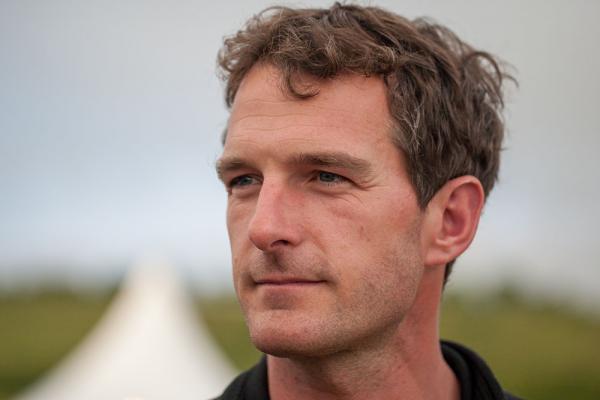
Despite the additional pressures, we have managed to hold the price of tickets for the past four years. A ticket to a tented talk also gives access to the Outdoor Programme for that particular day and, with the exception of the add-ons of Sword School (available to book) and fairground rides (payable on the day), a modestly priced single daily ticket to the Outdoor Programme covers the entire range of talks, panels and interactive displays on offer. We are anticipating significant pressure on tickets this year so we advise everyone to book early particularly since there could be a cap on the number of people allowed.
What are your plans going forward?
We are determined to revert to a physical Festival for Schools as this provides a unique outing for schoolchildren which they find enjoyable, educational and inspirational. If the outdoor stages prove successful this year, we will continue to expand the full festival experience.
The Daily Mail Chalke Valley History Festival will take place at Church Bottom, Broad Chalke, Salisbury, Wiltshire, SP5 5DS, from Wednesday 23rd to Sunday 27th June.
Tickets are on sale to the general public from 19 May. For more details about the festival, and to see the full programme, please visit www.cvhf.org.uk. You can follow all the Chalke Valley History Festival news on Twitter at @CVHISTORYFEST or on Facebook and Instagram.
Title image © Elizabeth Perry
- Log in to post comments


